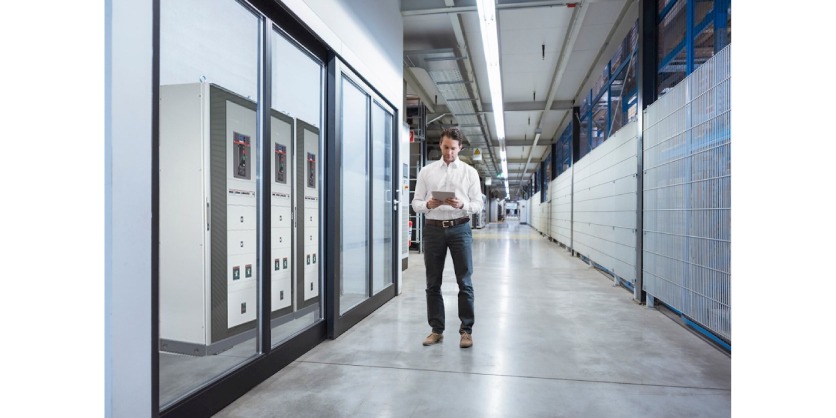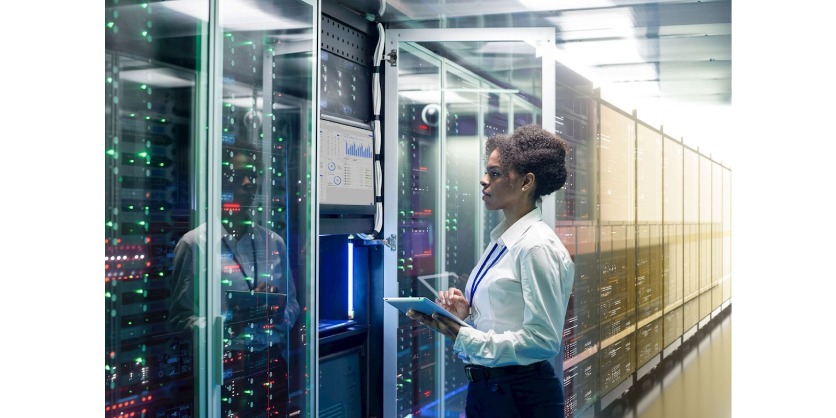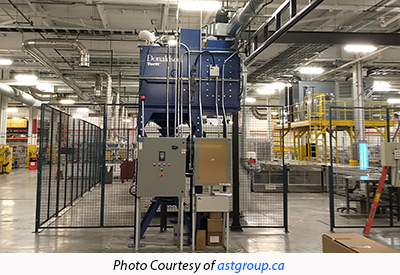The Drive Towards Energy-Efficient Data Centres
April 17, 2024

By Shahrukh Ashhar
Data centres are the backbone of our digital world. They serve as the foundation for various online activities like streaming, e-commerce, and website/app usage. In today’s tech-driven world, our attention is actively captured by our online activities, all of which heavily depend on data centres.
The demand for storage and processing is skyrocketing, further propelling this growth is the rapid adoption of emerging technologies such as artificial intelligence, machine learning and big data analytics. The Internet of Things (IoT), which connects the digital and physical worlds through a network of sensors, and the rollout of 5G networks for mobile devices will fuel the exponential growth of data centres.
Significantly impacting energy consumption
The rising demand for data brings a notable problem – data centres use a considerable amount of electricity. They account for 1 to 1.3% of global electricity consumption, with high-density computing devices, cooling, and electrical equipment loads being the main contributors to their overall electricity consumption. As their exponential growth continues to surge, we face a critical challenge: how do we make these data centres more sustainable?
It is crucial to improve energy efficiency to expand sustainably. The industry addresses this by implementing strategies to conserve and recycle the electricity used to operate data centres. Highly efficient ABB devices, transformers, uninterrupted power supplies (UPS) systems, cables, and protection and switching devices, can help with this challenge by ensuring the highest power distribution efficiency.
For example, ABB’s UPS systems provide a continuous and reliable power of up to 24 kV for mission-critical facilities. With 98% efficiency, this power supply protects loads while reducing downtime and constitutes an efficient energy solution for data centres. With such a highly efficient power supply and the right design, the usual 20% power distribution losses can be cut to just 5%.
Meeting the challenges of energy efficiency
Given the industry’s cost sensitivity, data centres face numerous challenges in staying efficient and competitive. Managing expenses, especially energy and HVAC costs for equipment cooling, is crucial, and turning to digitalization can help cut costs and enhance overall efficiency.
Cloud based or on-premise connectivity platforms such as ABB Ability™ provide reliable, cost-effective solutions for HVAC energy monitoring and asset monitoring to collect data remotely. That data is then analyzed and accessible on a fully integrated ABB platform. The data, refreshed every 30 seconds, is rolled into a preconfigured dashboard for data centres, and users benefit from all the information about their operation. This includes data points for power usage effectiveness, input and output power, energy trends, peak power, etc. In addition to producing reports and analyses about digitalized equipment, the system provides insights that enable smarter (and even automated) energy consumption decision-making.
Supply chain management is another significant challenge, as data centres require uninterrupted operations and quick availability of equipment. Delays in the supply chain can reduce availability and losses can be significant. ABB Ability introduces predictability for digitalized equipment, providing managers with data to better plan equipement maintenance and manage uptime. Knowledge of equipment health constitutes another advantage in an increasingly complex supply chain environment. Data centres can source locally in Canada when delivery timeframes don’t align with equipment life cycles, avoiding costly delays and ensuring prompt maintenance services.

Why Canada is attracting data centre investment
Investment priorities in the data centre industry are shifting towards regions with available renewable energy. Hyperscale data centres, facilities owned by and housed by a single large company and colocation providers, which rent to their customers, are now focusing on places rich in clean energy. Hence, the focus quickly turns to Canada, a major clean and renewable energy producer. The country is the world’s second largest producer of hydroelectricity and is gaining investment attention.
Canadian data centres consume about 1% of the total electricity used in Canada yearly. The country’s abundant renewable power sources are not just a competitive advantage for its minimal carbon footprint. They are also attractive for their competitive energy prices and frigid weather conditions. The cold climate allows for naturally free cooling of large infrastructure with a limited investment for part of the year due to cool outdoor temperatures. As a result, Canada places 5th in the world in hosting data centres and estimates that data centre investment will grow to 5.48 billion dollars by 2028.
Making data centres more sustainable
Data centres are driven by cost considerations to enhance energy efficiency, but additional sustainability practices can contribute to further progress and reduced costs.
A growing number of manufacturers are developing energy-efficient solutions by updating legacy equipment with modern digitalized products, reducing an operation’s carbon footprint.
Even straightforward changes, such as replacing conventional switchgear with more environmentally friendly SF6-free digital medium-voltage switchgear, can make a significant impact. Digital switchgear from ABB, combining proven technologies with digital components and software solutions, enhances safety and reduces installation costs. The impacts are significant. These upgrades reduce space needed and optimize operational costs by up to 30% while constantly detecting condition and maintenance needs.
Moreover, digitalized equipment features multiple sensors that measure temperature and humidity and indicate when conditions change. Couple that with electrical device utilization and operating cycle information and digital switchgear can monitor its own health. That way, it can predict potential failures before they occur or alert when maintenance is needed, avoiding costly or unnecessary downtime.
When it comes time to decommission equipment, customers can turn to ABB, which has taken a company-wide approach to circularity. We aim to innovate towards circular business models by cutting waste, increasing recyclability and reusability, and making our products more durable. We also work closely with customers and suppliers to embed circularity across the value chain.
Lastly, from a sustainability perspective, reliability is key to reducing a facility’s carbon footprint. Numerous factors affect data centre reliability, including power conditions, inadequate cooling, equipment failure, natural and artificial disasters, or human errors. With so many external factors at play, data centres can enhance asset management and monitoring to provide equipment efficiency and optimal resource usage because what’s at stake affects us all.
Those who implement energy-efficient solutions will reap the cost-benefits and help yield a more sustainable world. As Canada emerges as a hotspot for renewable energy, the push towards energy-efficient and sustainable solutions becomes imperative in shaping the future of data centres.

About Shahrukh Ashhar
Experienced in business management, strategy, sales, and marketing, Shahrukh Ashhar is an imaginative and people-focused professional with over two decades of experience. The current Segment Leader of Data Centre Solutions at ABB Canada, he has a track record in driving sustainable growth across diverse sectors such as industry 4.0, renewable energy, COG, e-mobility, utilities, power protection, energy efficiency, process industry, motion control, food and beverage, and smart cities. Shahrukh holds a Master of Business Administration – International Business from Sam Higginbottom University of Agriculture, Technology and Sciences. He is a 2025 candidate for a Business Administration and Management Doctorate from Manipal GlobalNxt University.
More Information
For more information about ABB Canada’s data centre solutions, visit https://new.abb.com/ca/segments/data-centers.
Related Story
ABB’s Care and Modernization Services Breathe Second Life into Legacy Equipment
In today’s world with environmental concerns top of mind, ABB offers sustainable options to extend equipment life through refurbishment and repair—which support a circular economy and reduce landfill footprints. In this context, ABB Canada’s Brampton facility is recognized for offering customized solutions for a growing list of ABB , GE, and non-ABB products.






